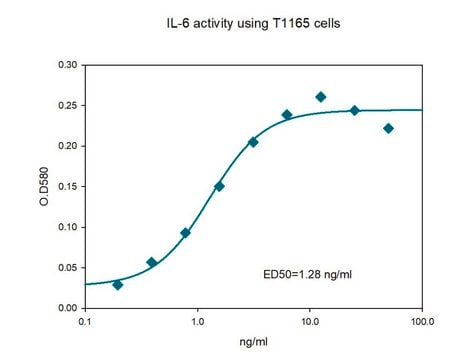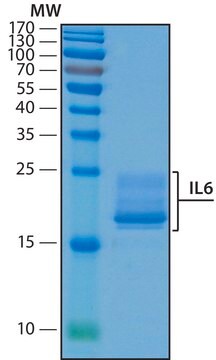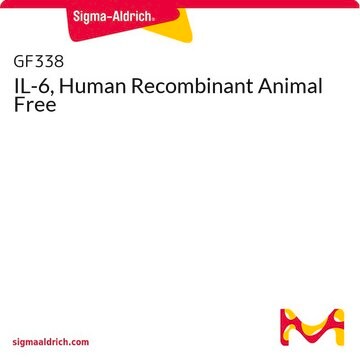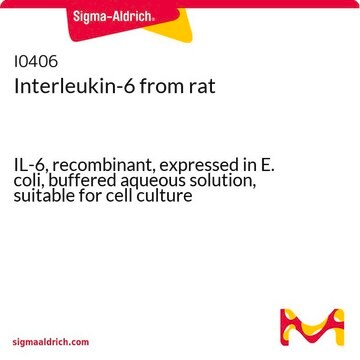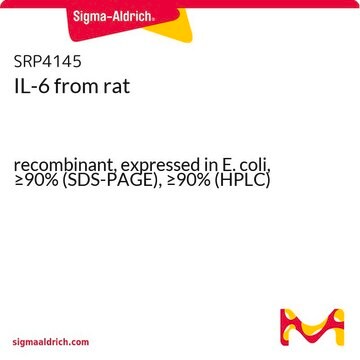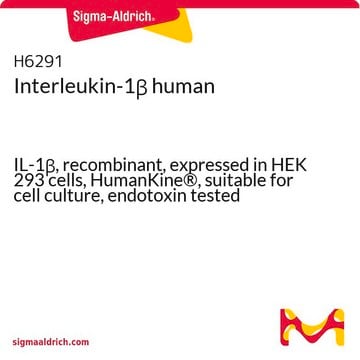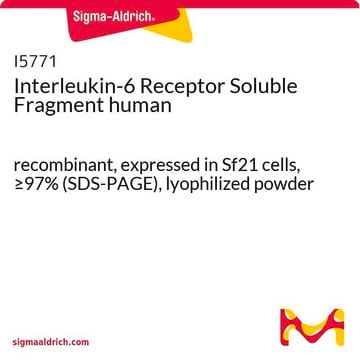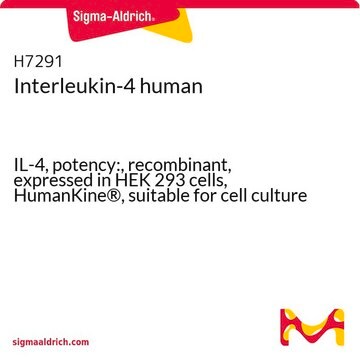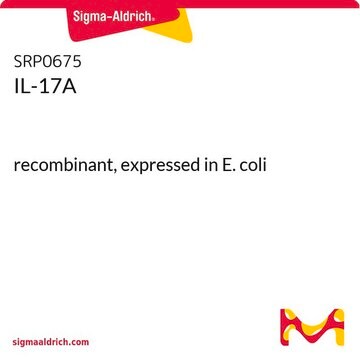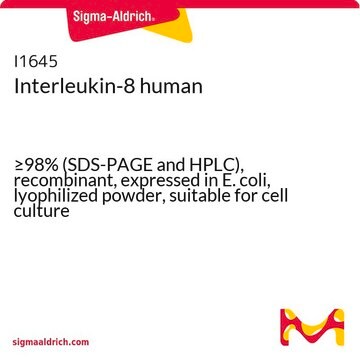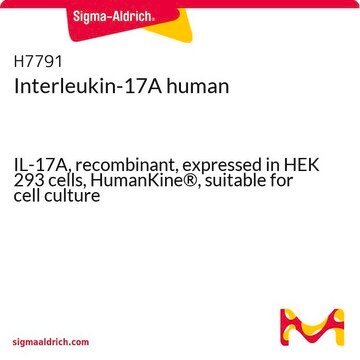H7416
IL-6 human
≥95% (SDS-PAGE), recombinant, expressed in HEK 293 cells, lyophilized powder, suitable for cell culture
Synonym(s):
Interleukin-6 human, IL-6
About This Item
Recommended Products
Product Name
Interleukin-6 human, IL-6, recombinant, expressed in HEK 293 cells, suitable for cell culture
biological source
human
Quality Level
recombinant
expressed in HEK 293 cells
Assay
≥95% (SDS-PAGE)
form
lyophilized powder
potency
≤2.0 ng/mL ED50
quality
endotoxin tested
mol wt
dimer 26-30 kDa (glycosylated)
packaging
pkg of 10 μg
technique(s)
cell culture | mammalian: suitable
impurities
≤1.00 EU/μg
UniProt accession no.
storage temp.
−20°C
Gene Information
human ... IL6(3569)
Looking for similar products? Visit Product Comparison Guide
General description
Application
Biochem/physiol Actions
Preparation Note
Analysis Note
Storage Class Code
11 - Combustible Solids
WGK
WGK 1
Flash Point(F)
Not applicable
Flash Point(C)
Not applicable
Choose from one of the most recent versions:
Certificates of Analysis (COA)
Don't see the Right Version?
If you require a particular version, you can look up a specific certificate by the Lot or Batch number.
Already Own This Product?
Find documentation for the products that you have recently purchased in the Document Library.
Customers Also Viewed
Articles
Role of growth factors in stem cell differentiation and various growth factors for your research at sigmaaldrich.com
Lipid Induced Insulin Resistance
Our team of scientists has experience in all areas of research including Life Science, Material Science, Chemical Synthesis, Chromatography, Analytical and many others.
Contact Technical Service
